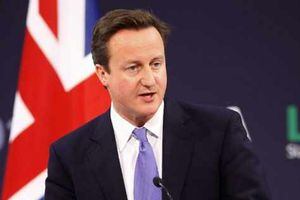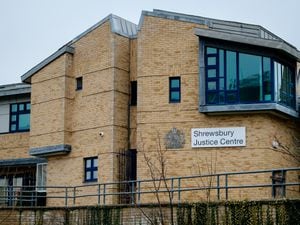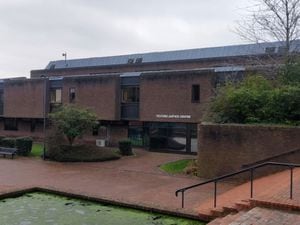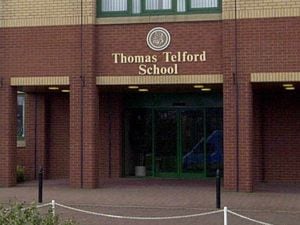David Cameron: 'We'll compete on the industries of the future'
Prime Minister David Cameron talks to the Shropshire Star about the impact of the Government's spending cuts

Prime Minister David Cameron talks to the Shropshire Star's Sunita Patel about the impact of the Government's spending cuts
 Shropshire is a county of contrasts with rapid industrial and commercial development and dense pockets of population - surrounded by large areas of open countryside dependent on a rural economy.
Shropshire is a county of contrasts with rapid industrial and commercial development and dense pockets of population - surrounded by large areas of open countryside dependent on a rural economy.
The Ironbridge Gorge was once the industrial pulse of the nation, but the region is now struggling with the loss of dying industries and household names which once provided many tens of thousands of jobs.
In a bid to stabilise things, the coalition has extended the enterprise finance guarantee scheme - a loan initiative introduced by the previous government to help businesses - and cut corporation tax for small firms.
It has also offered some 400,000 new firms a chance to trim their tax bill by announcing a National Insurance "holiday" for up to the first 10 employees hired in their first year of operation.
It is tough on the ground out there - and firms are incredibly nervous and cautious about the future.
The Prime Minister accepts confidence does rely on the coalition delivering its pledges to tackle the deficit and get on with the changes it has been talking about to boost employment and the economy.
"I totally recognise we need to do more on helping small firms and also getting bank lending going," he says.
"In the end, the economic growth and jobs growth and investment growth is going to come from that small firm sector. We recognise that there has got to be a private sector led recovery and that means making it easier for firms to take people on and expand.
"When I go round the country, the message I'm getting is that it is bank lending that is still one of the things that is holding firms back. We need to keep pushing at this because I think it is the biggest issue."
Asked what he thinks the jobs of the future will be - and if Shropshire can continue to make things to earn a crust, he replies: "Absolutely we can. One of the reasons I have been travelling the world is to connect Britain up to some of the fastest growing parts of the world - China, India and Turkey - all of which have got double-digit growth rates and they want to buy British exports.
"We are definitely in the business of making things - high-end manufacturing, aerospace, green technology, science-based businesses - and there is a growth in our manufacturing industry at the moment and also a quite strong growth in our exports to some of these parts of the world.
"We are not going to compete on the basis of cheap, low-cost, mass produced goods, but skills, science, engineering, aerospace, green-technology - the industries of the future.
"We shouldn't ignore industries like services, tourism, financial services, which we have an expertise in too."
The long-awaited spending review in October saw the unveiling of drastic £81 billion spending cuts.
The budgets of all Government departments except health and international aid were slashed, and the Government was accused of putting the public in danger by forcing them to axe staff and cut corners.
West Mercia Police has announced some 300 jobs will be lost to save up to £10 million over the next three years.
The Premier believes it can be more effective and succeed in cutting crime with fewer officers - and that its resourcing challenges need not result in a drop in the quality of policing.
And that test can be met by cutting back office costs, sharing diver and helicopter teams and other specialist policing functions with other forces.
"Her Majesty's Inspectorate of Constabulary have said you can have the same quality of policing with 12 per cent less money," he says.
"If you add to that the fact that we are freezing police officers' pay for two years, we are looking at some of the allowances that they get, we are also cutting forms that take up hundreds of thousands of hours of police time - if you look at those things then I think it is perfectly possible to deliver as good, or possibly even better policing than we have now with less money. That's the test - making sure everything is in the teeth rather than in the tail.
"This is not an easy agenda. But when money is tight, everyone has to work out how we do more for less - and I think the police can do more for less.
"What people want is visible policing on the beat. That's not just about combating crime, but also reassurance, public safety and security.
"So, if you cut the paperwork and if you deal with the back office and share services in the way that I have suggested, there is every chance that the public can continue to get what they want, which is visible policing on the streets . . . I back my police minister."
Police forces have been told where they stand - but the fates of air bases like RAF Cosford remain in limbo while decisions are discussed as part of the MoD cuts.
It has been estimated that the livelihoods of tens of thousands of people in Staffordshire and Shropshire depend on its continued operation.
Mr Cameron admits when the announcements will be forthcoming is anybody's guess, but says decisions will be taken on military, as well as economic grounds.
"I don't think anyone can accuse the Government of being backward in coming forward with decisions.
"We have had a Strategic Defence Review, Budget, a spending round, Queen's Speech, we have made very big decisions about defence.
"Some of the questions about bases are very complicated because of the return of the Army from Germany. It is an enormous logistical exercise - 20,000 people - so these things do take time if you are trying to get them right."
The cuts are only starting to bite and there has been a lot of talk of similarities to the 1980s when we also had controversial spending cuts, riots, big increases in unemployment in parts of the country - and even a royal wedding.
This week marks the 20th anniversary of Margaret Thatcher's resignation as Prime Minister.
Mr Cameron insists there are a lot of differences between now and the 1980s and defends the Government's "tough decisions", which he says will "strengthen the country and the economy", while protecting the most vulnerable from falling into poverty.
"You have a Government that is a coalition Government that is doing some difficult things, but difficult things that would have to be done whoever was in government," he says.
"This Government is all about trying to take the right long-term decisions."





